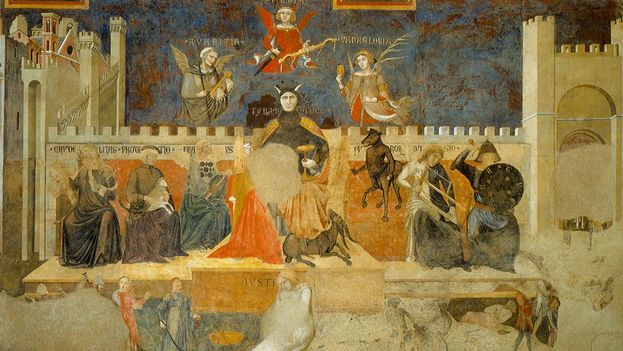
![]() 14ymedio, Manuel Pereira, Mexico City, 26 December 2015 — Bernard Shaw said: “Politicians and diapers need to be changed often (…) and for the same reasons.” The Venezuelan people, in an act of courage and wisdom, decided to change the diapers.
14ymedio, Manuel Pereira, Mexico City, 26 December 2015 — Bernard Shaw said: “Politicians and diapers need to be changed often (…) and for the same reasons.” The Venezuelan people, in an act of courage and wisdom, decided to change the diapers.
Populists don’t like changing diapers. We see it in several Latin American countries. This obstinate reluctance was also evident in the much-vaunted Cuba-United States “thaw,” which has yet to emerge from its ice age, at least for the ordinary Cuban.
Democracy in various regions of Latin America is still in diapers, many of its politicians are like eternal infants, many nights missing their bottles. This is the ideal breeding ground for the increase in totalitarian temptations.
In 1960 Fidel Castro set the tone in his speech: “Elections? What for?”
Feeling chosen by history, populists become intransigent, arrogating to themselves a moral superiority that prevents them from accepting electoral defeats, aspiring to lifelong power, like popes and monarchs, like the Duvalier family and the North Korean dynasty. They cling to power, like spoiled children cling to their teddies or their pillows, throwing a tantrum for any reason.
Francisco de Miranda already said it when he was arrested by Bolivar in La Guaira:
“Gossip! Gossip! These people are capable of nothing but gossip!”
“These people” now amounts to Chavismo and its replicants in other countries.
All this is nothing more than magical realism mixed with underdevelopment. It is Magical Realism as it turns into Horrible Realism. For Alejo Carpentier “the marvelous (magical) … arises from an alteration in reality (the miracle).”
In politics this “miracle” usually leads to ruthless dictatorships. The Caribbean is swarming with these superstitious defects: Noriega with his red underpants, Trujillo hiding from lightning, political necrophilia around the bodies of Bolivar and Chavez, Maduro talking to birds or multiplying penises, Fidel Castro with the dove on this shoulder, and the rest of the nonsense that makes picturesque literature, but is terrible to direct the fate of millions of human beings.
Returning to the words of Bernard Shaw: Can you imagine the smell of the Cuban government after more than half a century without changing its diapers?
Victor Hugo had it right: “Kings are for those nations in diapers.”
Another symptom of democratic degradation is the idle chatter of Latin American populism. I am referring to that whole invention of “Bolivarian” and “21st Century socialism.”
Socialism, communism, or whatever you call it is a nineteenth century invention and it always will be. It is an outdated and failed system. There is no point in trying to resuscitate it with flamboyant labels and new expiration dates when the product is visibly rotten.
Populists are versed in gibberish, producing not even a screw, but fabricating sophistry without cease. Apart from being a fallacy, this pretending to be “Bolivarian” and socialist at the same time is Cantinflesque gobbledygook
Simon Bolivar has nothing to do with socialism. For Marx, Bolivar was “the Napoleon of retreats,” a “coward, tyrant, petty, resentful and deceitful,” and he also considered him a traitor for delivering Francisco de Miranda to the Spanish.
The incoherence and demagoguery of Chavismo is eye-popping: this monstrosity undoubtedly conceived in Havana where they had already spent years trying to connect thoughts as incompatible as those of José Martí and Karl Marx.
A complete distortion of “these people.” They call the embargo a blockade, see coups d’etat on all sides, and complain about an “economic war” that they themselves provoked.
Moreover, despotism, warlordism and feudal patriarchy are Hispanic atavisms very difficult to extirpate. Ramón del Valle-Inclán knew this well when he wrote his grotesque novel Tyrant Banderas (1926) with which he inaugurated a Latin American subgenre of dictatorship fiction.
Valle-Inclán’s sequels include Miguel Angel Asturias’ The President (1946), The Great Burundun Burunda Has Died (1952) by Jorge Zalamea, I, the Supreme (1974) from Agusto Roa Bastos, Alejo Carpenter’s Reasons of State (1974), The Autumn of the Patriarch (1975) by Gabriel Garcia Marquez, and Mario Vargas Llosa’s The Feast of the Goat (2000).
The proliferation of this literary subgenre is no accident, nor does it follow a fad, but it is the telluric, idiosyncratic and ancestral reflection of an important part of our continental reality.
